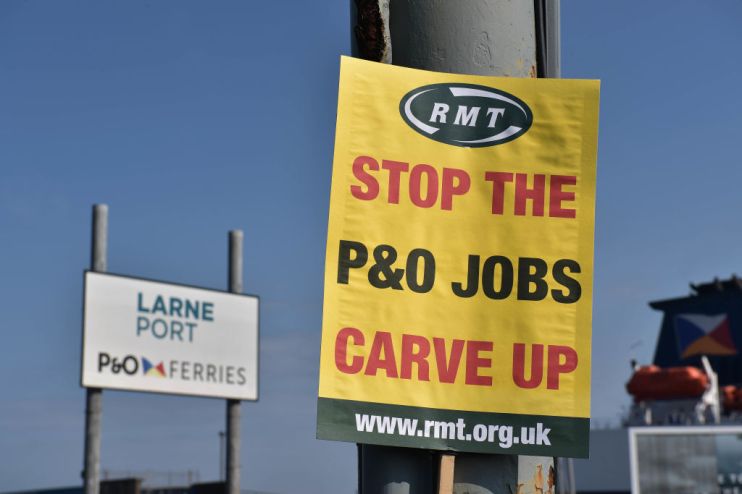New laws introduced to boost ship workers’ pay in bid to close P&O Ferries loophole

In wake of the P&O Ferries scandal, new laws have been introduced to ensure seafarers with close links to Britain are paid the national minimum wage.
The move has been taken in a bid to improve working conditions on ships after P&O Ferries decision to fire 800 of its staff last year.
Shipowners will now be required to show they pay their staff the UK’s national minimum wage if their ships regularly travel to Britain or dock in the country’s ports 120 times or more each year.
The rules, which passed into law today, form part of the UK government’s nine-point plan to improve seafarers working conditions, after P&O Ferries laid off 800 British staff with a view to replacing them agency workers paid below the minimum wage.
The new rules are aimed at closing legal loopholes that let shipowners pay their workers less than the minimum wage for their time at sea.
Previously, only seafarers who ordinarily worked in the UK were entitled to receive minimum wage while in Britain’s territorial waters.
The new Seafarers’ Wage Act will instead seek to ensure all workers on ships that regularly travel to Britain are covered by the UK’s minimum wage protections.
The UK’s national minimum wage currently sits at rates of £9.50 an hour for those aged 23 and over, £9.18 an hour for those aged 21-23, and £6.83 an hour for those aged 18-20.
P&O Ferries’ fire-and-rehire strategy saw the Dubai-owned company fire 800 staff via video call and replace them with foreign agency workers paid at average rates of just £5.50 an hour.
Shipowners that fail to show they pay their staff the UK’s national minimum wage will now face the threat of being blocked from entering Britain’s ports.
UK transport secretary Mark Harper said: “These workers deserve a fair wage and I’m therefore delighted to see our Seafarers’ Wages Act become law, helping improve pay and protect seafarers from exploitation.”
Nautilus executive officer, Martyn Gray said the seafarers unions “welcomes” the passing of the new law and “support the aim of this legislation to ensure ferry workers regularly docking in UK ports are paid at least the UK national minimum wage.”
Gray, however, warned “the Seafarers’ Wages Act will not, by itself, force a change to P&O Ferries’ exploitative crewing model or stop another P&O Ferries from happening again.”
“Government must do more to end the race to the bottom in terms and conditions for ferry workers exacerbated by P&O Ferries.”
“This must start with implementing a mandatory seafarers charter, backed up by bilateral agreements with neighbouring countries, that ensures wages and safe roster patterns reflective of local standards, not international minimums.”
A P&O Ferries spokesperson said: “We have been vocal about the need for a level playing field when it comes to pay and conditions on British ferry routes.”
“Like many other operators and industry stakeholders, we now look forward to the opportunity to consult with the Department for Transport on the regulations required to implement the Seafarers’ Wages Act.”